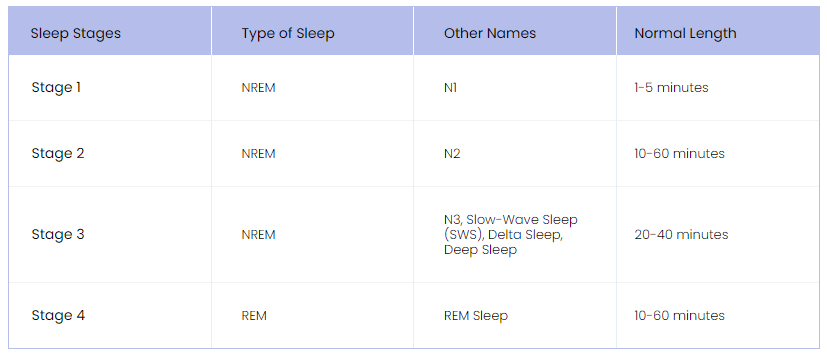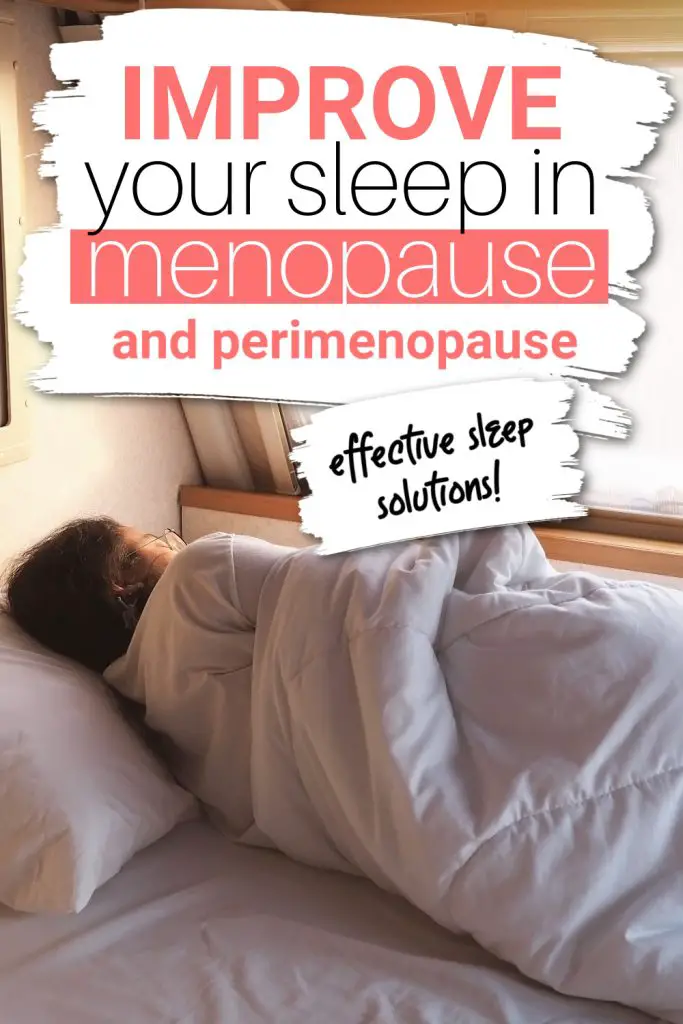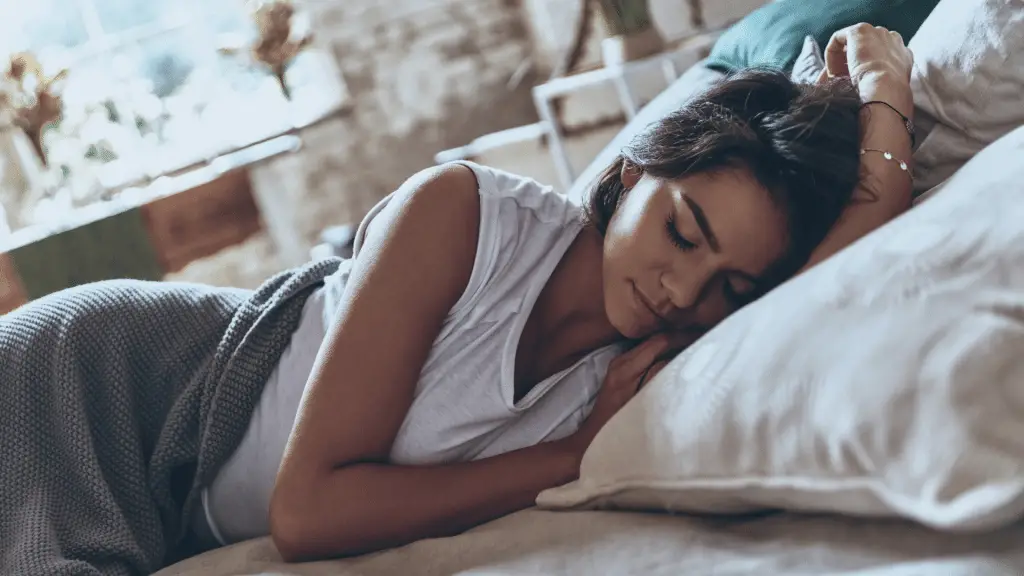Getting enough sleep is critical to your health and longevity. Unfortunately, most of us go through phases when getting enough sleep is difficult. Sometimes, it’s because we feel too busy, sometimes because we can’t turn off our brains and go to sleep, or because we wake up in the middle of the night, wide awake. I wrote this post about how to improve your sleep during perimenopause because I noticed that many women start struggling, even more, to get enough shut-eye as they reach the age of 40 or so. We will address why women have a hard time sleeping well during perimenopause and how they can overcome this challenge. I will provide you with my favorite ways to improve your sleep, and I promise, it won’t be counting sheep.

Why Perimenopause Has Ruined Your Sleep
Why is it hard to get good sleep during perimenopause? One word: hormones. In fact, I can my experience confirms this because I slept well my whole life except for during pregnancy and now perimenopause.
Hormones That Affect Your Sleep
Did you know that your body produces less and less melatonin as you age? That’s one reason why you will start sleeping less and struggling with sleeping well. Another hormone that will impact your sleep is estrogen. Estrogen improves the quality of your sleep and reduces the number of times you will wake up during the night. And guess what? Your body starts producing less estrogen during perimenopause.
Sleep Architecture
Another factor affecting your sleep as you age is your sleep architecture. Your sleep architecture is how you cycle through the different stages of sleep. As you get older, you spend more time in lighter and less time in deeper sleep, making it easier to wake up in the middle of the night.
Sleep Stages
There are four sleep stages. One for rapid eye movement (REM) sleep and three that form non-REM (NREM) sleep

Stages 3 and 4 are your most restorative and deepest sleep.
How to Get Better Sleep During Perimenopause
Of course, this section will include some of the typical advice you see about sleep, like not looking at screens before bed and getting some exercise, but I also tried to give you some tips on improving your sleep during perimenopause that would be new to you. Let’s see what you think.
Listen to Mediations or Podcasts
When I wake up unable to go back to sleep, this is my favorite way to solve the issue. I find listening to something calming. It helps me stop thinking, and I usually can go back to sleep within 20 minutes (as opposed to 1-2 hours). Find mediations or podcasts online. They abound everywhere. Spotify and YouTube are my favorite sources.
Read
Reading works similarly to listening to a podcast or meditation. It helps you turn your brain off. The only issue I have with reading sometimes is that I stop focusing on what I am reading, and I am thinking instead. For some reason, it doesn’t happen to me as much when I listen rather than read. Experiment and see what works for you.

Get Outside
It is well known that time in the sun and the dark helps regulate your circadian rhythm.
A week of camping may be enough to reset your internal clock. Not into camping? Make sure to get some morning light.
Here’s what you can try:
- Go outside for at least 15-30 minutes in the morning.
- Get some natural light while indoors. Do what you can to enjoy the light from outside while inside by facing the windows.
- Use a “light therapy” lamp.

Exercise
Ok! I warned you I would tell you to exercise! It seems like exercise is the cure for everything, including better sleep during perimenopause. You don’t have to spend hours at the gym to notice an improvement. Half an hour a day of simple bodyweight workouts or yoga should do the trick. Want to try a quick and effective yoga workout? Check out my post Starting Yoga at 40 or Later: Everything You Need to Know.
Don’t Look At a Screen
To be honest, I sometimes go to sleep reading a book on my phone. I think the issue is not the screen itself (after all, there are blue light filters, and you can even change the settings on your phone to avoid blue light). The issue is stimulating your brain too much.
Some examples of things that will keep you awake when you should be going to sleep:
- Scrolling through social media.
- Watching short videos (like Tik Toks).
- Watching your favorite show.
Avoid these activities at least 30 minutes before bed.
Tart Cherry Juice
Something that occasionally helps me (not fail-proof) is tart cherry juice concentrate. Tart cherries have been reported to contain high levels of phytochemicals including melatonin. I use the Purium brand if you want to check it out.

No Caffeine After Noon
As you may know, I love coffee! Keto coffee, regular coffee, iced coffee… However, as I get older, I notice I seem more sensitive to caffeine. I used to be able to drink coffee in the evening and sleep perfectly fine! Not anymore! If you struggle with sleep issues, try avoiding coffee in the afternoon.
In Summary
Improving your sleep during perimenopause will be all about experimenting with the suggestions I gave you, plus maybe some other ideas that relate to your specific issues (for example, if you suffer from sleep apnea or restless leg syndrome). You will most likely find that some things work for a while, and then you start waking up again. It’s ok! Try not to get discouraged, it’s a process just like weight loss is! There are ups and downs and breakthroughs! They are plateaus as well. The journey is just as important as the destination.




